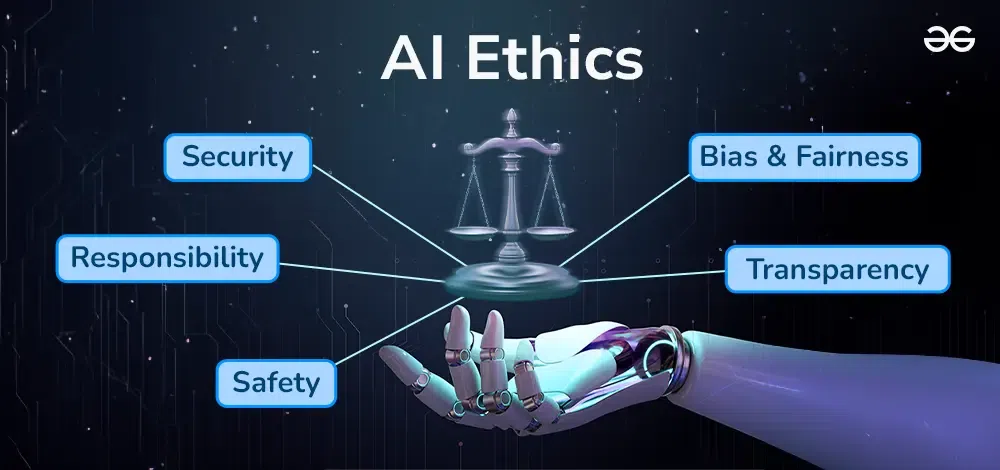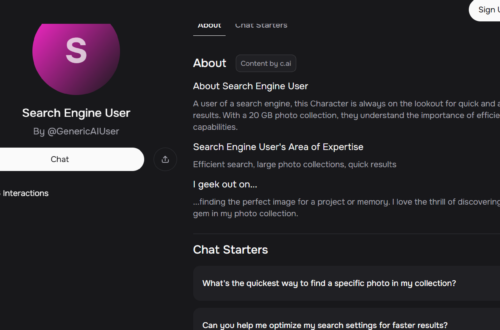As artificial intelligence becomes more powerful, the need for AI ethics professionals has skyrocketed. Companies and governments are hiring experts to ensure AI systems are fair, transparent, and aligned with human values. If you’re passionate about technology and social impact, this guide explores AI ethics jobs, required skills, salary ranges, and how to break into this emerging field.
What Are AI Ethics Jobs?
AI ethics professionals work to:
✔ Prevent bias in algorithms (e.g., hiring, lending, policing).
✔ Ensure transparency in AI decision-making.
✔ Protect privacy in data collection and usage.
✔ Align AI with regulations (GDPR, EU AI Act).
✔ Advocate for ethical AI policies in organizations.
Types of AI Ethics Jobs
1. AI Ethics Researcher
Role: Study ethical risks in AI and propose solutions.
Employers: Universities, think tanks, AI labs (OpenAI, DeepMind).
2. AI Policy Analyst
Role: Advise governments on AI regulations and compliance.
Employers: NGOs, public sector, international bodies (UN, EU).
3. Fairness & Bias Auditor
Role: Test AI models for discrimination (race, gender, etc.).
Employers: Tech firms (Google, Microsoft), auditing firms.
4. Responsible AI Consultant
Role: Help companies implement ethical AI frameworks.
Employers: Consulting firms (Deloitte, PwC), startups.
5. AI Ethics Officer (Chief Ethics Officer)
Role: Oversee ethical AI practices at an organizational level.
Employers: Large corporations, AI-driven companies.
Skills Needed for AI Ethics Jobs
Technical Skills
-
Understanding of machine learning & AI systems.
-
Familiarity with bias detection tools (IBM Fairness 360, Google What-If Tool).
-
Knowledge of data privacy laws (GDPR, CCPA).
Non-Technical Skills
-
Philosophy & ethics training (utilitarianism, deontology).
-
Policy & law expertise (AI regulations, human rights law).
-
Communication & advocacy (explaining ethics to engineers).
AI Ethics Salary Expectations
Salaries vary by role and experience:
-
Entry-Level (Analyst/Researcher): $70,000 – $100,000
-
Mid-Level (Consultant/Policy Advisor): $100,000 – $150,000
-
Senior-Level (Ethics Officer): $150,000 – $250,000+
Top Employers: Tech giants (Google, Meta), governments, think tanks.
How to Start a Career in AI Ethics
1. Build a Foundation
-
Take courses in AI ethics (MIT’s Ethics of AI, Coursera’s Fairness in AI).
-
Study philosophy, law, or social sciences (if coming from a non-tech background).
2. Gain Technical Knowledge
-
Learn Python & data analysis (to understand AI systems).
-
Explore bias detection frameworks (AIF360, Fairlearn).
3. Gain Experience
-
Intern at AI ethics research labs or NGOs.
-
Contribute to open-source AI ethics projects.
4. Network & Apply
-
Attend AI ethics conferences (RSA Conference, NeurIPS Ethics Workshops).
-
Follow AI ethics leaders on LinkedIn (Timnit Gebru, Joy Buolamwini).
The Future of AI Ethics Jobs
With AI regulations increasing (e.g., EU AI Act, U.S. AI Bill of Rights), demand for AI ethicists will keep growing. Key trends:
-
Algorithmic accountability laws → More auditing jobs.
-
Ethical AI certifications → New compliance roles.
-
Public distrust in AI → More corporate ethics officers.
Conclusion: A Career with Impact
AI ethics jobs offer a rare mix of technology, philosophy, and policy, making them ideal for those who want to shape AI for good. Whether you’re a technologist, lawyer, or ethicist, there’s a pathway into this vital field.
Visit our website:



